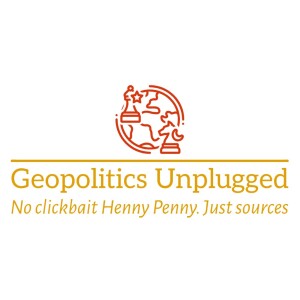
Monday Oct 21, 2024
EP07: Comments on France commissioning a new nuclear aircraft carrier and the essential need for becoming a blue water navy
Summary:
In this episode, we discuss France's recent commissioning of a new nuclear aircraft carrier and how it signifies its commitment to remaining a blue-water navy, a powerful naval force capable of operating across vast distances. This move comes as the world experiences a shift away from full-scale globalization and a return to reshoring industries. A blue-water navy is critical for projecting military power, influencing global maritime affairs, and safeguarding vital sea lanes. France's investment in this new carrier underscores its ambition to remain a major player on the international stage.
Questions to consider as you read/listen:
- What are the key characteristics of a "blue-water" navy, and how do they differ from "green water" and "brown water" naval forces?
- How does the commissioning of France's new nuclear aircraft carrier illustrate the strategic importance of having a blue-water navy in the context of globalization and global power dynamics?
- How is France's commitment to a blue-water navy reflected in their broader foreign policy goals and regional security interests?
Long format:
France commissions a new nuclear aircraft carrier and the essential need for becoming a blue water navy
In the news today (October 18, 2024 was the announcement that France had commissioned a new nuclear aircraft carrier to replace the aging Charles de Gaulle.
What does this mean and why is it noteworthy?
A blue-water navy is a naval force that can deploy ships across the open ocean and support them from a distance. The term refers to the ships themselves, as well as the sailors who operate them.
A blue-water navy has several characteristics, including:
Force protection: The ability to protect against threats from underwater, surface, and aerial warfare
Logistic reach: The ability to sustain a presence at long range with alliances made to long distant foreign ports that will allow for restocking of consumable resources at a reasonable cost.
Replenishment at sea: The ability to conduct replenishment while at sea
Submarine protection: The ability to protect against enemy submarines, either with its own submarines or other means.
In contrast, "green water" refers to coastal waters, ports, and harbors, and "brown water" refers to navigable rivers and their estuaries.
Currently worldwide, the only true blue water navies are the US, France and Japan. There is debate over the UK with a lot of folks pointing to the lack of reliable operating aircraft carriers and its historical loss of naval capabilities as making it less than a full blue water navy.
China, Russia and India clearly have aspirations to be true blue water navies but are not there yet.
A Bluewater navy is important for a country because it allows them to project military power far from their home shores, enabling them to influence global maritime affairs, protect vital sea lanes, deter potential adversaries, and respond to crises in distant regions, essentially establishing them as a significant player on the international stage. A strong Bluewater navy can control vital sea lanes, safeguarding trade routes and ensuring the free flow of goods. It is the free passage safely of the seas that made globalization possible and profitable for everyone.
As we the world continues to decouple and there continues to be a retreat from full scale globalization, having a true blue water navy becomes essential.
With today’s announcement of commissioning a new nuclear aircraft carrier, France continues to show its commitment to this key future orientated necessity as the world continues to decouple and nations reshore industry and manufacturing with the retreat from full globalization.
Sources:
No comments yet. Be the first to say something!